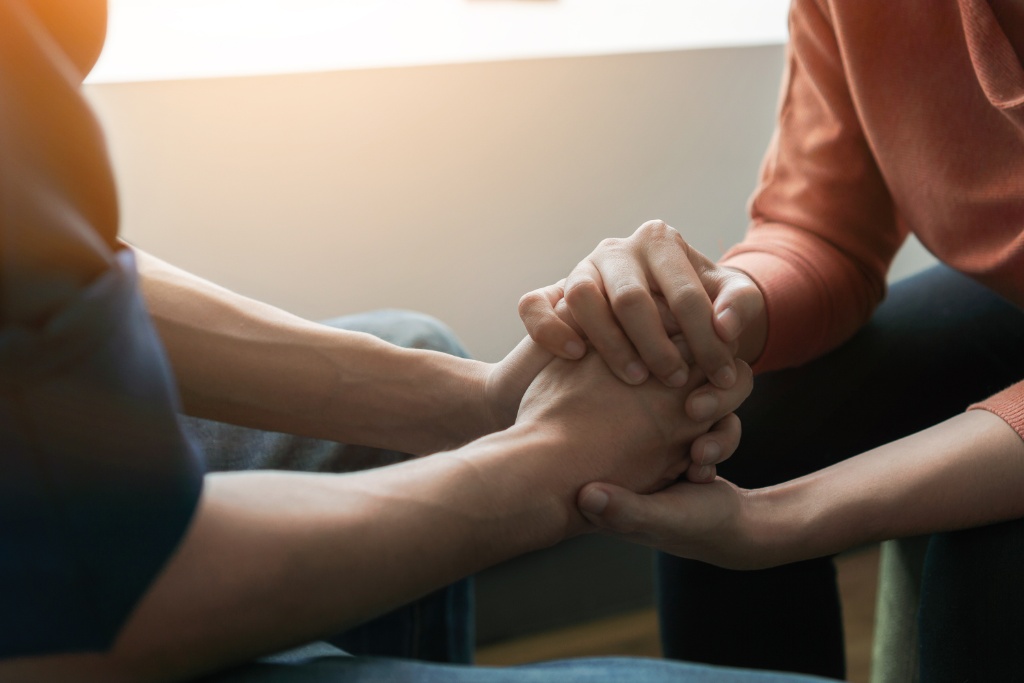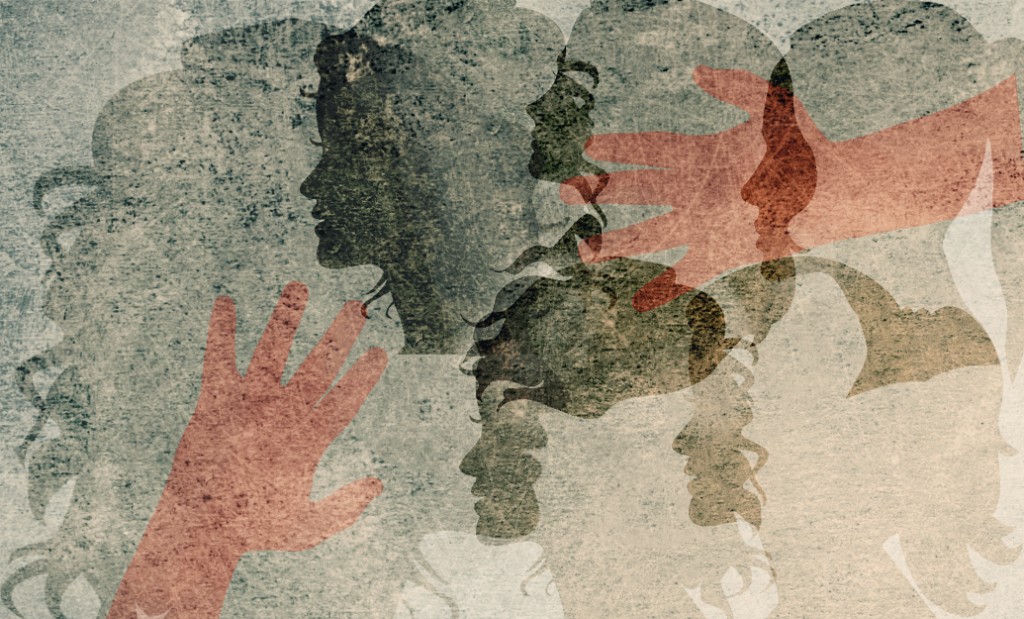Calgary Institutional Abuse Lawyers
Get legal answers now. Speak to our lawyers.
Speak with our Calgary institutional abuse lawyers and get legal answers to your institutional abuse questions.
Table of Contents
Abuse claims are based on sexual or physical violence. When these acts are committed by organizations with authority over their members, it may be institutional abuse. Organizations have an obligation to protect its members. Unless institutions have safeguards to select the right staff, policies on interactions between staff and members, supervise their team, and investigate claims, abuse will happen; worst still, abuse will spread. Anyone can be the victim of institutional abuse, regardless of gender, sexuality, or age. Institutional abuse is a widespread, pervasive, societal issue. An estimated 1.8 million Albertans– nearly one in two members of the local population – have been the victims of sexual violence in their lifetimes.
According to the Criminal Code of Canada, institutional abuse is an indictable offence. Those who are found guilty of committing this reprehensible crime could be subject to incarceration. After the crime has been reported to the police, the Alberta Crown Prosecution Service can pursue criminal charges against the perpetrator.
However, people who have survived can also choose to pursue a civil claim against them and any other people or organizations whose negligent actions may have put them in harm’s way. By doing so, survivors of institutional abuse may be able to recover financial compensation for damages they have incurred as a result of the trauma they were forced to endure. If you or a loved one has suffered from institutional abuse, contact our Calgary institutional abuse lawyers today for a free consultation.
An Overview of how Institutional Abuse happens
The perpetrators of institutional abuse exploit an imbalance of power between themselves and their targets. They use this power and trust to engage in non-consensual sexual activity. If a person abuses their position of power, takes advantage of a young or vulnerable person’s trust, or exploits someone else’s dependency upon them, they have committed institutional abuse.
Abusers often use threats, blackmail, emotionally manipulative tactics, intimidation, and violence to get what they want. Their targets are often children, teenagers, and members of vulnerable populations. Perpetrators often seek employment in occupations that will put them in close contact with potential victims, such as:
- Teachers
- Religious leaders
- Sports coaches
- Camp counselors
- Scout leaders
- Extracurricular programme guides
- Psychiatric hospital staff
- Correctional officers, guards at juvenile detention centres
- Foster parents
- Caregivers
- And more
Let us put our experience to work for you
Tell Us What Happened
We are here to help Albertans get the compensation and benefits they deserve after being injured in an accident. We take this responsibility very seriously. Book your free call with our personal injury lawyers today and let us help you.
Our phone lines are open 24/7.

The Long-Lasting Impacts of Institutional Abuse
Sometimes victims of abuse suffer at their hands of the perpetrator for brief moments, but the impact lasts their lifetimes. In particular, those who were subjected to abuse in childhood shapes they perspective of the world. When a child’s innocence is exploited, it is a normal reaction to mistrust others. Further, it is not uncommon for survivors to develop self-destructive coping mechanisms to deal with their traumatic experiences. Responses to abuse can include self-harm, unhealthy lifestyle choices, and a reliance on alcohol and/or other substances. In fact, institutional abuse survivors are 26 times more likely to develop substance use disorders. Finally, victims blame themselves, leading to psychological problems caused by the abuse.
Perpetrators make their victims feel special, and then, after the abuse, they often feel guilty about their acts. Children who do not understand what has occurred often internalize the guilt and shame of the perpetrator. This is horrendous. It means that victims often have:
- Mistrust of people, especially those in authority
- Confusion around a healthy relationship with sex
- Develop anxiety
- Develop Post-Traumatic Stress Disorder
- Develop depression
- Substance abuse issues
Survivors of institutional abuse may struggle with trust issues, making it difficult for them to form and maintain relationships with friends or romantic partners. Trust issues often cause trouble regarding employment.
Depending on when the abuse occurred, survivors may have found it impossible to continue on pursuing higher levels of education or vocational training. As a result of someone else’s criminal actions, survivors of institutional abuse could sustain a reduced future earning capacity, fail to reach their potential, and become ineligible for employment opportunities.
In addition to this loss of potential earnings, people who have been subjected to institutional abuse could incur substantial financial losses in relation to the trauma they have withstood. Survivors of institutional abuse often require ongoing, long-term psychological treatment, psychiatric care, prescriptions, addiction counselling, and other expenses. Many struggle to afford the costs of care required to truly reckon with the abuse to which they were subjected.
Who Is Liable in an Institutional Abuse Claim?
A person who has been sexually abused by an individual is entitled to hold them accountable for their actions. In many abuse claims, the individual perpetrator may not have sufficient personal funds to pay the settlement award they owe the survivor. However, in some cases, the institutions can be held responsible if the actions (or inactions) of others made it easier for the perpetrator to carry out abuse. By taking action against the organization, claimants in institutional abuse cases may be able to recover the compensation to which they are rightfully entitled.
Institutional abuse refers to incidents of institutional abuse that occur within the context of an organization that fails to protect targets from exploitation. Oftentimes, this includes a culture of secrecy that prioritizes the organizations or individual perpetrators’ reputations over the physical and emotional well-being of the young or vulnerable people it is meant to serve.
If an organization’s leadership was negligent in its duty to protect individuals from sexual exploitation or if it failed to take appropriate action after receiving reports or complaints about abuse, its silence could have devastating consequences for countless others. By allowing an abuser to continue working in a consequence-free environment, the negligent organizations implicitly condone their criminal actions, exposing even more people to life-changing trauma. As such, organizations may be liable for damages arising from institutional abuse.
How can our Calgary institutional abuse lawyers help with getting compensation for your injuries?
It is never too late to contact our Calgary institutional abuse lawyers to take advantage of a cost-free, no-obligation consultation. Even if your abuse occurred years in the past, our institutional abuse lawyers may be able to offer critical assistance in your pursuit of justice. By working with our lawyers, survivors throughout the province may be able to recover financial compensation for damages they have incurred as a result of their past trauma.
Our institutional abuse lawyers appreciate how much courage it can take to talk about past trauma. During a confidential, free initial consultation, you will have the chance to share as many details about your experience as you are comfortable with, and receive personalized, case-specific advice about options for legal actions that might be available to you. Contact us for legal help today.
Do you live in Calgary? Here’s how we can help:
Notable Achievements
Awards and Recognitions
Proud to be one of Canada’s oldest personal injury law firms. The firm was founded in 1959 and has now grown to numerous offices across Canada. We have cumulatively secured over $1 billion for thousands of Canadians and are proud to maintain a high standard for our professional services without compromising on care or compassion.
Read More On institutional abuse Claims
Here are some blogs on institutional abuse claims.

institutional abuse
|
September 5, 2025
Justice for Victims of Canadian Military Cadets Institutional Abuse in Alberta
Canada’s military cadet youth programs are designed for young people aged 12 to 18. The programs’ primary goal is to develop leadership, citizenship, and physical…

institutional abuse
|
February 27, 2025
Alberta Big Brothers Big Sisters Institutional Sexual Abuse
Numerous reports by victims have shown that young people suffered institutional abuse that was sexual, physical, and psychological in nature while participating in Big Brothers’…

institutional abuse
|
December 24, 2024
Boy Scouts and Girl Guides Institutional Abuse Claims
Legal Options for Former Scouts and Guides Who Were Sexually Abused in Alberta Decades of allegations and reports have surfaced of current and former (Boy)…
Commonly Asked institutional abuse Questions
Here are our most asked questions on institutional abuse claims.
What is the process of pursuing an institutional abuse case?
Institutional abuse cases typically involve the following steps:
- Investigate the claim and get the right parties;
- File a lawsuit;
- Develop your case through documents and experts;
- Participating in discovery to provide a chance for the lawyers to ask the parties questions about the case;
- Participate in Mediation. Mediation provides a chance to resolve your case without going to court; and
- Go to trial. Most cases settle, but if the parties cannot reach an agreement, asking a court to assess the case is the solution.
What evidence is needed to support an institutional abuse claim?
Records about the victim and the perpetrator are both important to confirm what happened and the impact the abuse had on the victim. We strongly recommend expert reports from a psychiatrist, a vocational expert, and an economist to fully prove the case.
How might an institution allow abuse to happen?
Unfortunately, perpetrators seek out work with children. Therefore, institutions must be vigilant in training and monitoring staff and taking any allegations very seriously. Leaders of organizations may be hesitant to expose these types of allegations and fully investigate claims as it will hurt the institution. This concern to protect the organization may lead to this same staff continuing to abuse the same victim or others.
What is institutional abuse?
Abuse is physical or sexual violence. Institutional abuse is when organizations fail to train or monitor their staff, and abuse is allowed to continue and spread. Organizations may also fail to investigate allegations of abuse, which allows abusers to continue their crimes.
Who can sue for institutional abuse?
Any victim of institutional abuse can sue. The limitation period has been changed to remove strict limitation periods when bringing their claims, so you may be able to bring a lawsuit for abuse that happened decades ago.
Who is liable for institutional abuse?
Both the individual abuser and the organization that put them in a position of trust may be liable to pay victims damages. Most organizations have insurance in place for specific periods, so the insurer who covered the period when the abuse happened ultimately pays for the compensation.
How can a personal injury lawyer help with an institutional abuse case?
Lawyers can help investigate your claim and confirm the right entities to sue. Determining the governance of religious and other organizations is not always obvious. Lawyers hire experts to explain the impact of the trauma on your life and career. Telling your story is essential to getting a strong result.
Is there a deadline on when an institutional abuse case can be claimed?
The limitation act changed, so there is no time limit for bringing your claim. The government recognized that assault victims often repress memories, and it would be unfair to prevent victims from bringing their claims before they remember what happened.
What kind of compensation is available for victims of institutional abuse?
Compensation, or damages, are determined by dividing your case up into segments known as heads of damage. When abuse causes a student to leave school or alters their career, these claims can be quite significant. The typical heads of damage for abuse claims include:
- Pain and suffering;
- Past wage loss, including interest;
- Future wage loss;
- Out-of-pocket expenses; and
- Expected future care.
Is it possible to stay anonymous during the claim process?
Yes. Lawyers can bring an application to the court and get an order to proceed with the lawsuit, but only list your initials.
SURVIVOR OF INSTITUTIONAL ABUSE IN CALGARY?
Contact Our Compassionate Legal Team
Confidential, supportive guidance
We’ll listen, explain your rights, and help you pursue justice against those responsible.
Proudly Serving Calgary
Book Your FREE Consultation
Preszler Injury Lawyers assists clients throughout Calgary and across Canada with a wide range of legal matters.
Contact us today to get started with a free consultation.



